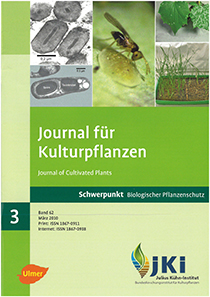Importance of biological control for tropical Africa
DOI:
https://doi.org/10.5073/JfK.2010.03.09Keywords:
Classical biological control, cassava mealybug, mango mealybug, cassava green mite, waterhyacinth, economic analysisAbstract
Though studies in biological control belong to the best documented research in ecology the actual decision to release a beneficial organism is often influenced by diffuse fears of anything foreign. Yet, agriculture is largely based on exotics; others remain inconspicuous and integrate themselves without problems into the existing ecosystems; and only few actually cause damage. It is against this latter group that the introduction of adapted predators from the region of origin, so-called classical biological control, offers most promise. Here we present four projects from tropical Africa, which were documented throughout all stages from the introduction of predators and parasitoids to the calculations of economic benefits: cassava mealybug, mango mealybug, cassava green mite, and waterhyacinth. Apart from specific conclusions, the high returns of these projects and the various impacts on non-target organisms are discussed.
Published
Issue
Section
License
The content of the journal is licensed under the Creative Commons Attribution 4.0 License. Any user is free to share and adapt (remix, transform, build upon) the content as long as the original publication is attributed (authors, title, year, journal, issue, pages).
The copyright of the published work remains with the authors. The authors grant the Journal of Cultivated Plants, the Julius Kühn-Institut and the OpenAgrar repository the non-exclusive right to distribute and exploit the work.







